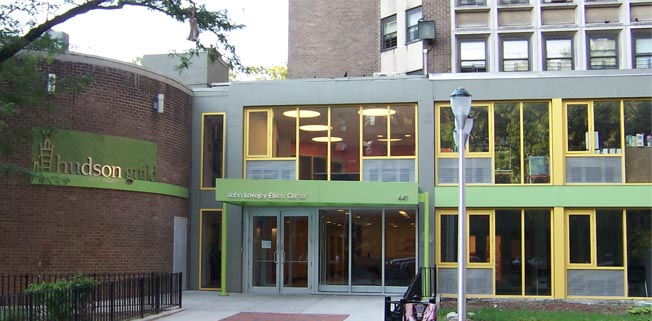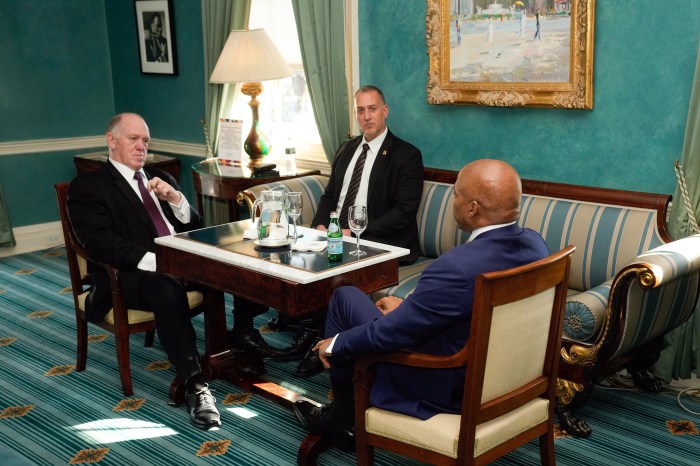
BY DUSICA SUE MALESEVIC | Fifteen years ago, volunteers looking to start a community supported agriculture (CSA) program needed a home in Chelsea.
They turned to Hudson Guild, a nonprofit with deep roots in the community, and a long-lasting partnership was born.
Chelsea CSA (chelseacsa.org) operates its program out of Hudson Guild, which allows “many different types of people in the neighborhood to participate,” said Ken Jockers, executive director of Hudson Guild.
The deal is simple: a person pays to become a member and in return, from June to November, a bounty of organic vegetables will be ready for weekly pick up at the Elliot Center (441 W. 26th St. near 10th Ave.). The memberships are tiered — the standard is $555, sponsor is $615 and a discounted option is $405. Registration for this season ends June 5.
“We view the CSA as a critical part of our mission to provide services and activities that help individuals and families in the neighborhood be healthy, to make progress on their goals and to improve their lives,” said Jockers in a phone interview.
People come to Hudson Guild for a myriad of reasons, he explained, including low-cost childcare, for meals and activities in the senior center, or to prepare for the SATs.
“Just as important is a running a food program that allows people of all economic circumstances to have access to fresh, healthy food,” said Jockers, who had lived in Chelsea for many years.
Jockers said that the community response to the Chelsea CSA has been great.
“Every Tuesday afternoon during the CSA season the lobby is a hive of activity — it’s a really nice community activity,” he said. “CSA is one of those fantastic opportunities where people at all levels of this incredibly economically diverse neighborhood can intersect.”
Chelsea CSA is entirely volunteer run and managed, explained Laura Cole, its lead coordinator, in a phone interview. The organization’s members handle the weekly distribution.
In addition to Hudson Guild and members of the Chelsea community, the organization is partnered with Stoneledge Farm (stoneledge.farm), a 200-acre, family run organic farm in the Catskills, about two and half hours outside the city, she said.
Originally it was a sheep farm that was making wool products and selling them locally, she explained. Deborah Kavakos, who runs the farm with her family, was selling the wool products as well as extra vegetables from their garden.
The vegetables were selling really well and they decided to switch to farming full time, said Cole. They learned about the community supported agriculture movement and what it means to be a CSA farmer through Just Food, a non-profit organization located in the city that advocates for CSAs, sustainable farming, city gardens and beekeeping, said Cole.
According to the farm’s website, it has been a CSA since 1996. All of their produce goes to CSA members in New York City, Connecticut and upstate New York, Cole noted.
The Chelsea CSA has between 75 and 100 members and is one of the oldest of its kind in the city, she said. The CSA movement has been growing, she said, and while it is great in several ways, there is a bit more competition.
In 2012, there were 12,617 farms in the United States that “reported marketing products through a community supported agriculture arrangement,” according to the U.S. Department of Agriculture website.
Cole said the CSA model is based on the idea that members help sustain the farmer by buying an upfront share of whatever the farmer produces. For farmers, many costs come early in the season but they didn’t have things to sell until the harvest, she explained.
By giving the farmer guaranteed income, if one of the vegetables doesn’t do well, they are not as financially impacted by that, said Cole. Diversification helps farmers to be more stable and Chelsea CSA members get a lot of different vegetables, she said.
“It’s a great community of people in the neighborhood,” said Cole, who noted that it is an interesting and great group — many have lived in Chelsea for a long time, some for 40 years.
The upcoming season begins June 9 and registration for next year will begin in December, she said.
“It’s a really great example of how neighborhood volunteers and a bedrock social service organization can work together to benefit the whole neighborhood,” said Jockers.





































